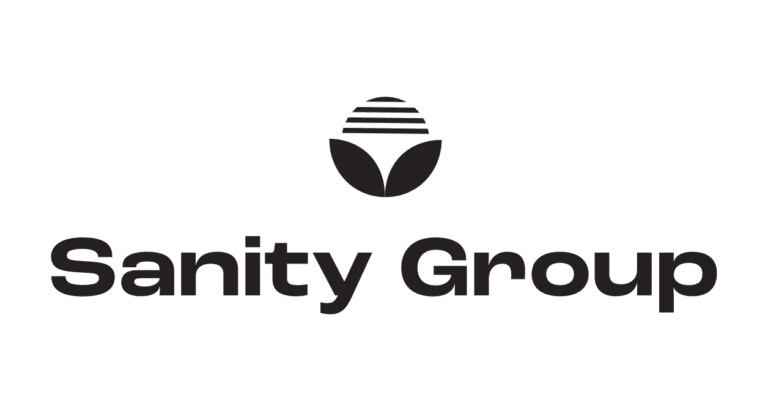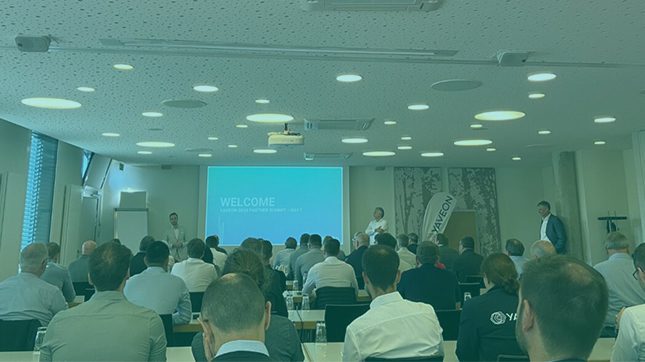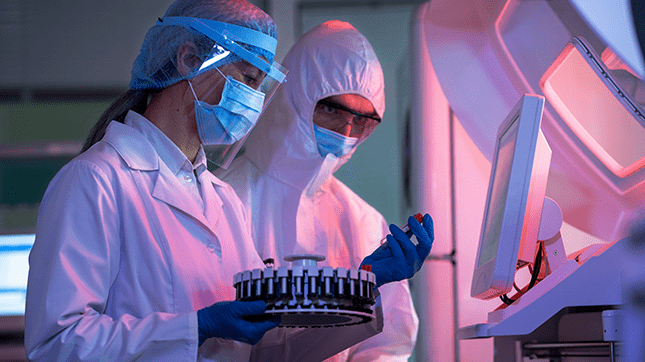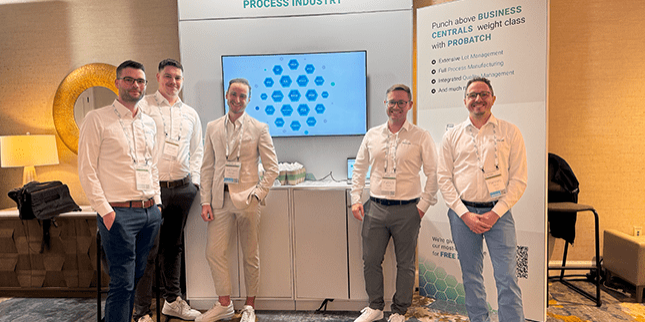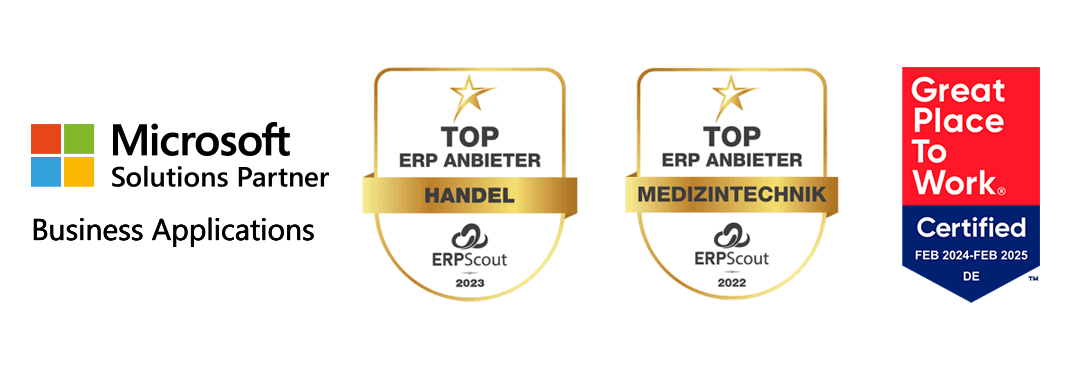Digitalization in the food industry
Digitization is not a futuristic vision. It is a part of everyday life, particularly in manufacturing sectors such as the food industry.
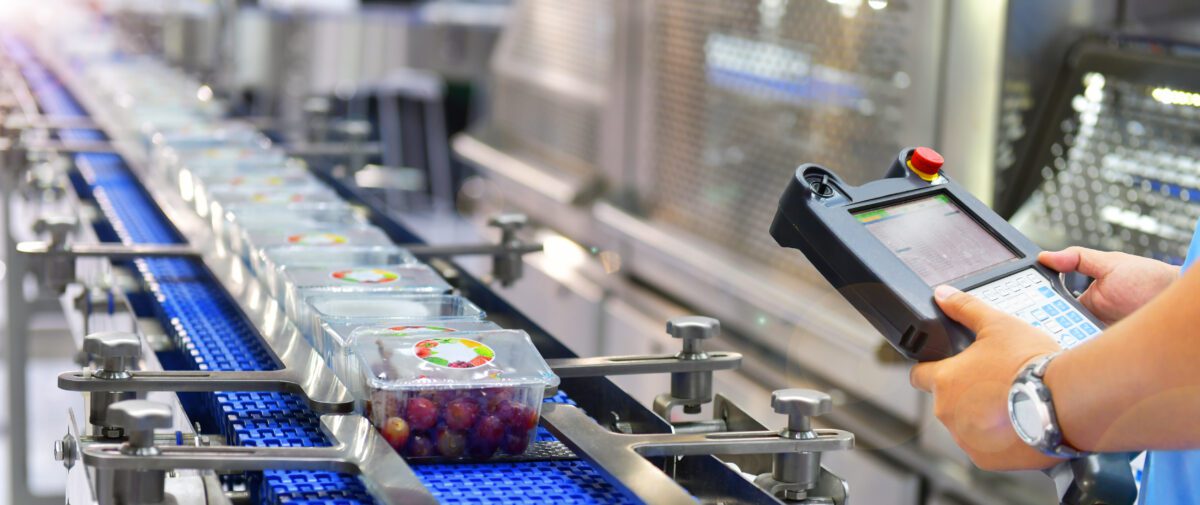
20. March 2023
New, future-proof technologies are changing how we approach and realize work challenges, creating huge opportunities. The trick is how we take advantage of these possibilities. In this article, food manufacturers can discover which tasks are already being simplified by digital processes, the role that software plays in these changes, and much more.
Digital Transformation in the food industry
Digital processes aren’t new for the food industry, but since the COVID-19 pandemic, the importance of digitalization has become more apparent. In 2020, companies faced mandatory work-from-home policies, collapsing supply chains, and significant staffing issues. A quick response was needed. Companies that adapted quickly to the new situation were the ones who remained operational. The solution was digital processes, as these are not dependent on location, but maintain operations from anywhere. Parallel to this development, customers were increasingly ordering food online, as customer preferences shifted in the past years towards digitalization. Where the food industry previously relied on retail markets to act as intermediaries, customers are increasingly buying directly from the manufacturers. Producers feel the need to adapt to this new consumer behavior by setting up attractive online stores.
Sustainability for a future-proof business
Another development in the food sector is sustainability. Consumers are increasingly asking where the products were sourced, and demanding ingredients free of harmful ingredients. For the food industry, that means increased pressure to bring new, innovative products to market that meet these demands. And companies that hesitate will soon be overtaken by their competitors. In the past, we didn’t have the digital technology that provides data and insights. Companies now use this information as a foundation to modernize their production environment, and optimize the synergy between people, machines, and processes.
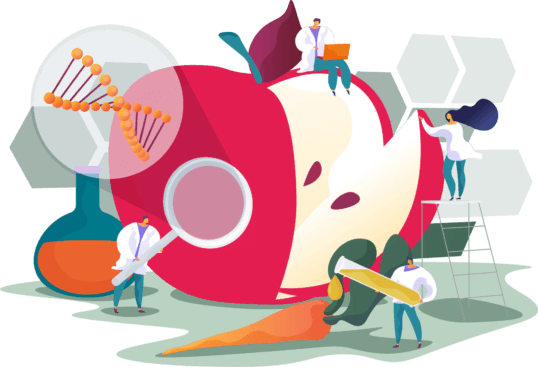
The food industry will remain digital
In a rapidly changing world, some may question whether this new world is here to stay, or if they’ll soon be replaced. It’s clear that trends in the food industry are constantly evolving, and no one can predict what will be fashionable in the future. But the digital structures that we’ve put in place in the last few years will remain. Why is that? Because they have proven useful, and we can’t imagine life without them. For example, the retailers who set up online shops during lockdown, and had - and continue to have - enormous success with them. Will they disappear? No way. Because, as we said, the competition never sleeps. Companies that look to the future have an effective digitization strategy to make the most of the benefits in the long term.
The key digitalization technologies in the food industry
From a small tool to an entire software suite, there are hundreds of options for digitalizing processes in the food industry. They all rely on key technologies, such as:
-
Internet of Things, IoT
The Internet of Things refers to everyday objects that transmit data via intelligent sensors. This can be used to detect upcoming maintenance requirements in food production machinery, for market research, to communicate information from the coffee machine to the manufacturer, or even to enable the fridge to order milk when supplies are low.
-
Big Data
The IoT is based on Big Data. This technology enables companies, such as food manufacturers, to store, filter, process, and analyze large amounts of data. This enables the identification of patterns, for example, to recognize potential optimizations of the production process.
-
Artificial Intelligence
Intelligent algorithms are used to handle tasks that were previously carried out by humans. Artificial intelligence is already taking over the diagnosis of diseases, facial recognition, the control of food recipes, and communication via robots, for example, with chatbots.
-
3D printing
Additive manufacturing makes it possible to create flexible objects. The 3-D printer creates thin plastic or metal layers to print three-dimensional solid objects. 3D printers are increasingly being used in the food industry. Products such as marzipan and chocolate can be printed easily, and more complex food products such as pizza are in development.
The top advantages of digitalization in the food industry
The right ERP for food businesses
Optimize your processes in the food industry with our ERP industry solution YAVEON ProBatch. Your key to successful digitalization and optimized operational processes.
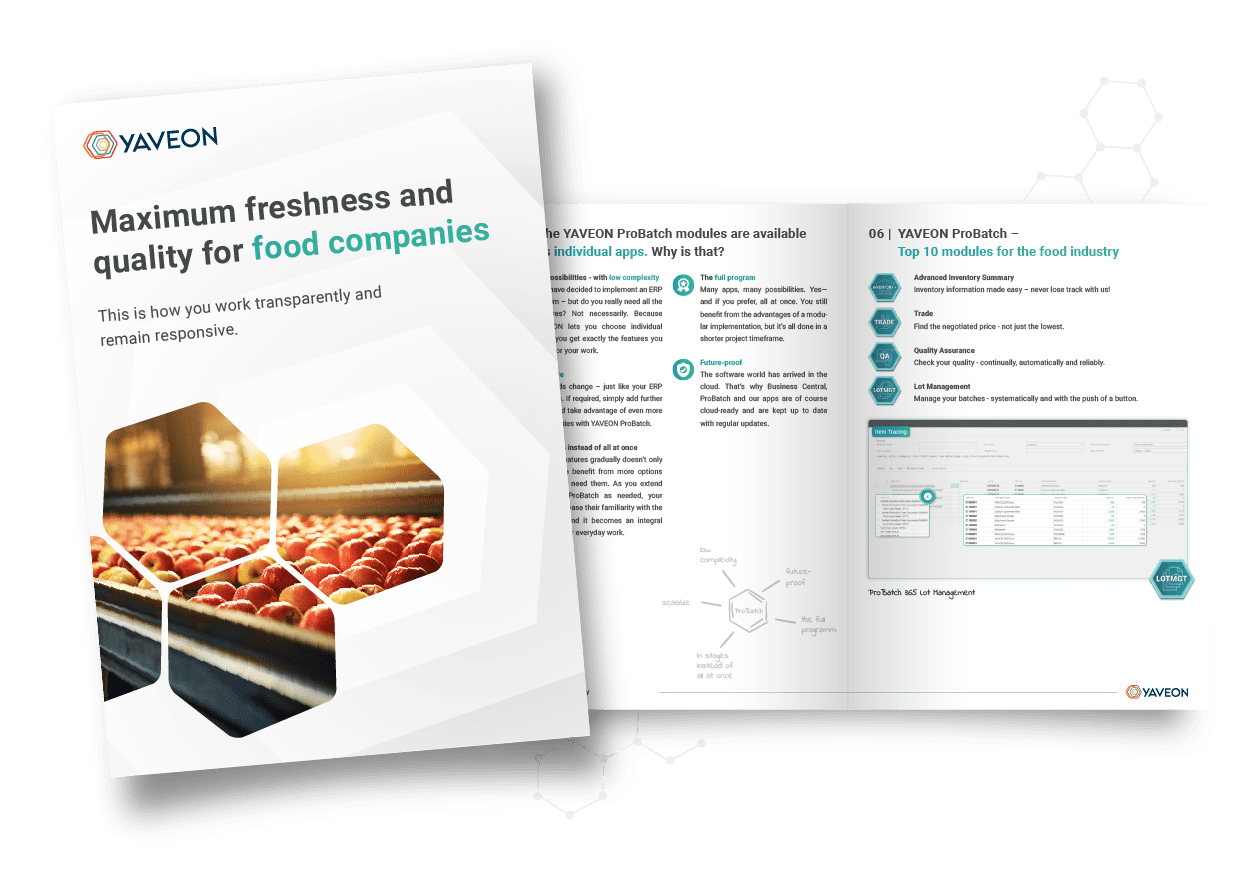
Examples of digitalization in the fod industry
There are many areas in the food industry that benefit from digitalization. These vary from company to company, and evolve over time. Here are some examples:
-
Work steps are automated and fused
The secret behind automated work is workflows. Step by step, the workflow initiates the next task, for example, to visualize the receipt of your goods for production with one click. The benefit is increased when the steps are connected, and each completed step triggers the next one. This is the case, for example, when invoice data from a document management system is combined with the ERP system.
-
Digital food tracking across the entire value chain
With a digital value chain, all stages in the food process can be mapped. From product development and production to delivery and customer feedback, every step can be tracked and traced.
-
Digital value chain
From ordering the raw material to invoicing - digitization is a great opportunity for companies from the food industry across the entire supply chain. Benefit from real-time data, reduced workload, a clear overview, the ability to see all the information at a glance, and the ability to archive in an audit-proof manner.
-
Digital planning
With digital planning, you always have a better overview. This is because the data is stored centrally with universal access. With this foundation, it is easier to plan requirements, and increase the efficiency of process setup. The result is cost-efficient processes, smooth planning of delivery quantities, and current inventory in real-time.
-
Digital twin
A digital twin is a virtual representation of a real object - from the individual component to the complete plant. This mapping is created to enable tests on the virtual object and simulate improvements. Only when these hold up are they implemented on the actual product.
-
Productivity and energy efficiency in food processing
Digital technologies are used to make processes more efficient. This results in faster processes and better results, alongside the potential to reduce power consumption and save energy.
-
Filling and packing
Data generated by digital tools can help optimize filling and packaging processes. Digital tools can be used in countless ways, for example, to connect production lines with packaging manufacturing lines, increase equipment efficiency, and identify unnecessary packaging waste.
Digital technologies are already finding their way into other industries as well and offer a wide variety of possible applications for optimizing the processes that prevail there. For example, similar tools are used for digitalization in medical technology, but there are completely different potentials and application scenarios.
How software can help with digitalization in the food industry
All of this sounds promising, and the possibilities are unending for food companies to benefit from digitalization. But how do you get the most out of it? With software. The trick is choosing the right solution. With Enterprise Resource Planning, you have the foundation to take digital capabilities in manufacturing to the next level. Those who want to be among the winners opt for an ERP tailored to their industry - like YAVEON ProBatch. The features of our solution meet the specific challenges of the food industry, giving you security, and uninterrupted operations while saving you time.
The time you save can be invested in research and development and recipe management, to develop exciting and creative new products.
Easily deal with time-consuming and nerve-wracking batch tracing
With digital quality controls, you make high-quality products with a reduced workload
Simplify warehouse and logistic management with an ERP, as secure processes reduce costs and increase process efficiency
Take advantage of the potential of digitalization and be a pioneer in your industry.
Will the future of the food industry be digital?
Digital processes are here, and an integral part of everyday life. So, what does the future look like? The food industry is rapidly changing, and these changes are likely to be digital, but on a whole new level. Digitization in the food industry is a process. Some trends are already apparent:
Linking consumer experiences across all channels
Accelerated e-commerce, which continues to gain ground
Maximum transparency towards customers and suppliers
Optimized supply chains based on new developments
Artificial intelligence is picking up speed and consolidating across industries
Innovations and advancements are slowly enriching the market. For manufacturing companies in particular, the new processes offer opportunities - and at the same time, are a bridge to a successful tomorrow. Those who want to be at the forefront of the future must not hesitate. Digital progress is the key. Does this sound scary? Don't worry, you’ve already prepared the ground. Because digitization is already in full swing - all you need to do is nurture the roots you've laid. Those who do so sustainably will be rewarded with a floral display that will make the competition green with envy.

